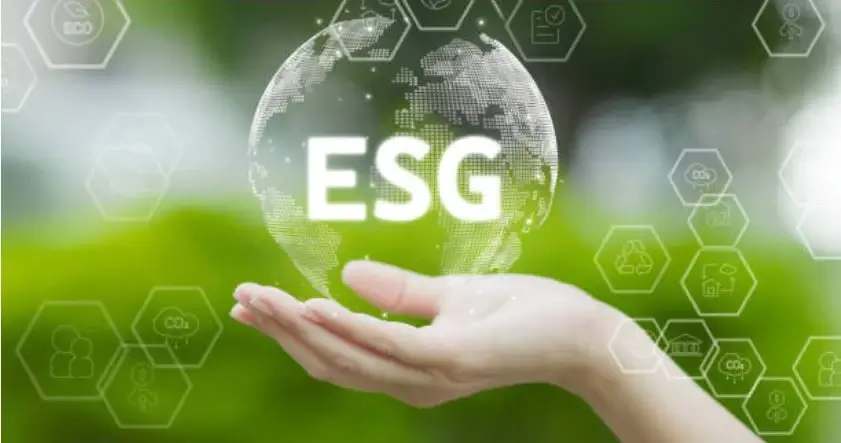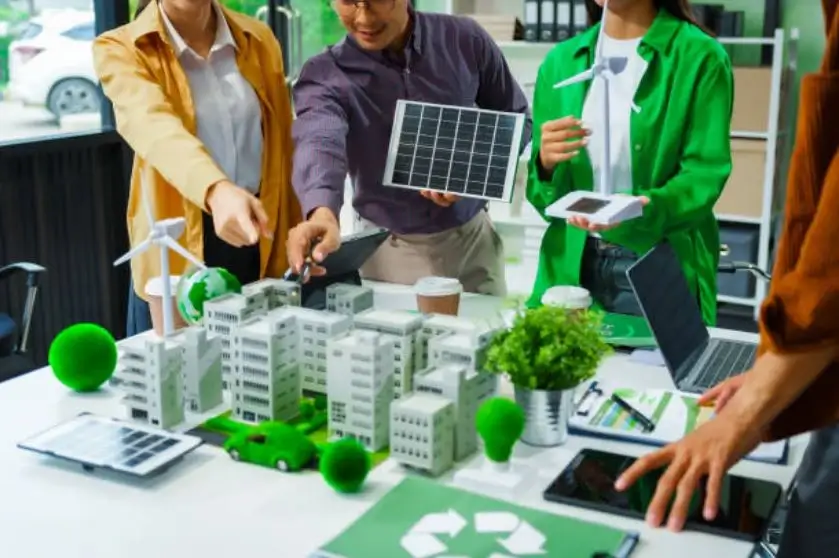Introduction to Recycling and Its Importance: Recycling plays an important role as it enables the reduction of waste, harnessing of resources, and environmental conservation. It entails the reuse of waste materials by transforming them into another valuable item without having to dump them in the dumpsites. The process of recycling cannot be equated to waste disposal alone. Because it is one of the ways of nurturing the future of our planet. Recycling helps to lessen pollution as well as the demand for extracting raw materials, and encourages the utilization of materials as often as possible.
The worldwide issue of waste has been making great concern, and to address this problem. Recycling should be regarded as important by individuals, firms, and governments. Applying proper recycling measures can assist in the conservation of resources, decrease energy use. And slow the negative impact on the environment from many human activities.
The Environmental Benefits of Recycling

Reducing Landfill Waste:
Recycling is advantageous in that no waste ends up going to the landfill, which is one of the primary objectives of recycling. Landfills are expanding greatly and threatening the environment by contributing to groundwater pollution, air pollution, and so on. It is because by recycling products like paper, plastics, glass, and metals. The amount of waste that ends up in the landfill will be greatly reduced.
This is also beneficial in that it conserves surface space and minimizes the emission of gases such as methane that are hazardous to the environment. It also decreases the transfer of hazardous substances into the soil and other sources of water, enhancing the environment’s well-being.
Conserving Natural Resources:
Recycling thus contributes to the conservation of the scarce natural resources that are fast being depleted in our society. For instance, the recycling of paper reduces the cutting down of trees, recycling of metal decreases the need for mining, and recycling of plastic decreases petroleum products.
Consequently, resource preservation means that future generations will always get the necessary materials to use without causing further destruction of the environment through extraction. Recycling and other efficient use of resources solve the problem of ecological rift by preventing habitat destruction and the annihilation of several species.
Lowering Greenhouse Gas Emissions:
Greenhouse gases form part of the causes of climate change worldwide, hence, recycling is an important factor towards controlling emissions. It has been established that the production of new goods from recycled materials is more energy-conservative as compared to the manufacturing of goods from raw materials.
As a result, the amount of carbon dioxide and other toxic gases emitted to the atmosphere is decreased. For example, aluminum can be recycled using a figure of 95% of the energy that would be used in the extraction of aluminum from the bauxite ore.
How Recycling Contributes to Waste Reduction

Minimizing Plastic Pollution:
Pollution by plastics is one of the emerging environmental issues, defined by the fact that billions of tons of plastic end up in the sea or even landfills. Recycling recycles plastic so it does not find its way to the water bodies, hence not affecting the aquatic wildlife.
This can be explained by the fact that when plastic waste is transformed into new products. There is a decreased demand for new plastic production because the harm it causes the planet is immense. It is now time to engage people in the proper discarding of plastics and many such measures to create a clean environment.
Repurposing and Reusing Materials:
Recycling is not only the transformation of used materials, but also the search for new opportunities to utilize them. Most objects like clothes, furniture, and electronics, such as refrigerators, Television sets, etc., can be recycled or repurposed to give them a new look.
Through encouraging other people to put their focus on reuse. The amount of waste produced will be greatly reduced, presuming the products are not disposable. Upcycling has the advantage of reusing the materials. Hence less strain on resources in the landfills, as well as providing some degree of innovation in the consumption and disposal process.
Encouraging Sustainable Consumption:
Recycling teaches human beings to be conscious of their waste, hence practicing responsible consumption. Thus, when individuals and businesses choose to be sustainable, they are making proper decisions on aspects such as packaging, product durability, and disposal.
Reducing and recycling waste, using preferred bags, and minimizing the use of plastic products are some of the achievable goals in the management of waste. Sustainable consumption helps to solve the problems of violating the norms of preserving the environment in the pursuit of convenience in society.
The Role of Recycling in Combating Climate Change
Energy Savings Through Recycling:
It is evident that recycling substances use less power as compared to producing them afresh from the raw materials. For instance, recycling glass is known to be 30% more efficient than producing the glass through the traditional way, from raw materials.
Also, the reuse of paper saves trees, water, and energy as compared to using new paper that is produced freshly. These energy savings in the reduction of incremental use of fossil fuel, which is one of the major causes of green greenhouse effect. Global recycling is aware, and this in turn can help to reduce the energy consumption by a big margin.
Reducing Carbon Footprint:
A low carbon emission entails a capacity that has a low impact on the climate and covers up emissions contributing to climate change. This entails the process of reusing most of the products that are normally discarded in the environment to serve the intended purpose again.
The use of recycled material has the added advantage of requiring less effort in the manufacturing processes. Which consequently reduces emissions. Besides, the purchase of products from businesses that utilize recycled material implies that better practices are being followed in production in the future.
Sustainable Manufacturing Practices:
Recycling products has now become a common business practice due to awareness of the manufacture of products from recycled material. But this leads to the integration of virgin resources and also aids in the establishment of a closed-loop process.
Sustainability-oriented organizations and companies minimize the use of organizational resources and decrease negative consequences on the environment. Sustainability in manufacturing is one of the steps to the fulfillment of the green agenda. And a demonstration of the significance of recycling in industries.
The Economic and Social Impact of Recycling

Job Creation in the Recycling Industry:
It is because it generates many employment slots throughout the collection, processing, and manufacturing companies. According to estimates, recycling plants, waste management companies. And other environmentally friendly organizations offer employment to millions of people across the globe.
The recycling industry helps to stimulate local economies. Being associated with the creation and development of new, ecologically safe ways of waste management.
Supporting a Circular Economy:
When we say circular economy, this only implies reusing, refurbishing, and recycling some materials so that they can be used for a longer period. This is an economic model that helps to reduce the level of waste generation. And optimize the utilisation of resources, whereby maximum storage space is given to material recycling. Recycling is an integral component in implementing a sustainable economy. In that it helps to preserve the turnover of products or materials for as long as they can be utilized.
Raising Environmental Awareness:
Any initiative in need of consumers to adopt sustainable practices must involve education and awareness about recycling. It is found that schools, organizations, and the government have a responsibility to educate the public on the benefits and the right ways of carrying out recycling.
Recycling programs create awareness among the public about the environment. And escalate the efforts of community members to eradicate pollution through waste management.
Conclusion:
Recycling is a general practice that triggers positive impacts on the environment, the economy, and society. The effects of recycling are as far-reaching as its efforts in cutting the amount of garbage that goes into landfills. And saving the quality of resources, combined with the reduction of pollution. With such awareness, it ought for people to embrace recycling and constantly endeavor to live green.
Government, enterprises, and the population dependent on them are equally responsible for enhancing recycling facilities and legislation. Recycling and material efficiency are functions of three significant factors: continued innovation, promotion of awareness on the existence of the practice, and people’s attitude towards taking positive actions towards recycling. Recycling is a practice that has long-term advantages since it helps to create a fresh environment favorable for future generations.
FAQs:
Q1: What are the commonly categorized recyclable materials?
Ans: Some of the most common items that are commonly discerned include paper, plastics, glass, meats, and electronics, among others.
Q2: From the economic perspective, if at all, how does recycling prove advantageous to the economy?
Ans: Of course, recycling produces new jobs and strengthens related industries. And it is also economically effective due to waste materials’ processing expenses.
Q3: What often happens wrong or incorrectly with recycling?
Ans: Some of the mistakes made include putting recyclable materials. Not sorting recyclable items, and putting an item in the wrong recycling bin.
Q4: What can one do for the improvement of recycling?
Ans: Through knowledge on the types of material that can or cannot be recycled. Disposing of waste in the right manner, avoiding the unnecessary use of plastic materials/ products, and patronizing environment-friendly/reusable products.
Q5: Why is plastic recycling important?
Ans: Reduction of pollution, utilization of materials in efficient ways, and creating a less detrimental situation for sea creatures and their environment.



